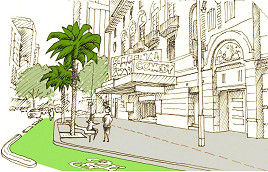Concerns grow of alcohol abuse as decision on late-night liquor licence freeze looms
CBD residents say they fear the outcome of a review next year of the existing freeze on late-night liquor licencing that could open the flood gates if it is not extended.
Since 2008, the state government has paused the issuing of liquor licences that would allow venues to serve alcohol past 1am.
The freeze, which was first introduced by former Premier John Brumby, has been aimed at reducing alcohol-related harm and crime in inner Melbourne.
Venues with existing late-night liquor licences can continue to trade and new venues can apply to trade past 1am if they meet certain exemption conditions.
Many residents say while they are all for the CBD being revitalised following the effects of the pandemic, they don’t believe late-night drinking is the right approach and hope common sense would prevail.
Their concerns come as the O’Brien Group, which lost its VCAT fight earlier this year to have its late-night trading extended to 3am at the under-construction Jobs Warehouse building in Bourke St, is believed to have made a recent push to have the state’s liquor licencing laws relaxed with the freeze up for review in June 2023, according to a report by ABC News in May.
A state government spokesperson told CBD News that the freeze would continue until June 2023, “subject to some exemptions”.
“Data from the current freeze and engagement with stakeholders will assist the evaluation of its effectiveness and inform future decision making,” the spokesperson said.
The report also featured a recent photo of Lord Mayor Sally Capp shaking hands with O’Brien Group chief executive Michael O’Brien, however the City of Melbourne said Cr Capp was invited to an event as she is by and with many businesses, and it was not a political meeting.
EastEnders residents’ group president Dr Stan Capp said he was worried that if the freeze on late-night liquor licences was lifted it “opens the door to further applications which may well be to the detriment of residents.”
“The freeze has worked long before the pandemic and it has worked quite effectively,” he told CBD News, adding there’s “lots of other ways” of enticing visitors back to the city.
“It’s probably saved a large amount of violence on the streets in the early morning hours. And there’s plenty of evidence that shows that from every hour after 1am there’s an increased incidence of serious assault and violence.”
“So, I think there’s a strong argument in favour of retaining the one o’clock licence.”
Residents 3000 president Rafael Camillo said allowing people to drink past 1am was “definitely not the way to go” and “the whole reason for the 3am freeze was about safety.”
“It’s frustrating that after all these years and with enough evidence we are still discussing these issues.”
Dr Claire Wilkinson, a National Health and Medical Research Council senior research fellow at the Drug Policy Modelling Program at the University of New South Wales, told CBD News a discussion was needed about a long-term policy with late-night entertainment that reduced harms around alcohol use.
“I think there are these mid-like sweet spot policies that should help both grow business and support business but do so in a way that has some provisions,” she said, which included things like requiring food to be served with alcohol.
“It is something I’ve just come back from a conference overseas and many governments and or city councils are facing these questions about how to make policy in the context of COVID. So, you know, the City of Melbourne or the Victorian Government isn’t alone, and neither are the residents’ concerns.”
A spokesperson for Melbourne Greens MP Adam Bandt said, “we want to see residents’ quality of life maintained as creative and arts-based industries recover and flourish after the lockdowns and life returns to the CBD once more.”
“The state government has to recognise we’re rebuilding a community as well as an economy and it’s important that the decision by state government balances the need to support local businesses with amenity for people who live in the CBD.”
The City of Melbourne was contacted for comment but said the freeze was a state government matter.
The O’Brien Group did not respond to a request for comment.
Meanwhile, safety was a key concern raised at a forum held by Residents 3000 in conjunction with Victoria Police on June 2, which was attended by about 70 people with many wanting more police patrolling on the streets.
Dr Capp said while it was “terrific that Victoria Police has initiated these sorts of dialogues with residents,” he believed a summit was needed to address future concerns.
“We’ve got random violence happening in the city, unsocial behaviour, all these things are addressed in different ways, and I applaud the way in which people are going about it, whether it’s the City of Melbourne or whether it’s Victoria Police or whether it’s Cohealth,” he said.
But he added, “we tend to be a little bit siloed in the way in which we deal with these various problems.”
“We’ve got a great role to play in all of this. But I just think it would be useful to have across the board, bringing together of all the key stakeholders including residents where we can have a significant discussion about the way forward and so everybody’s basically on the same page.”

Council endorses office tower at Flinders Lane despite querying car park demolition





 Download the Latest Edition
Download the Latest Edition